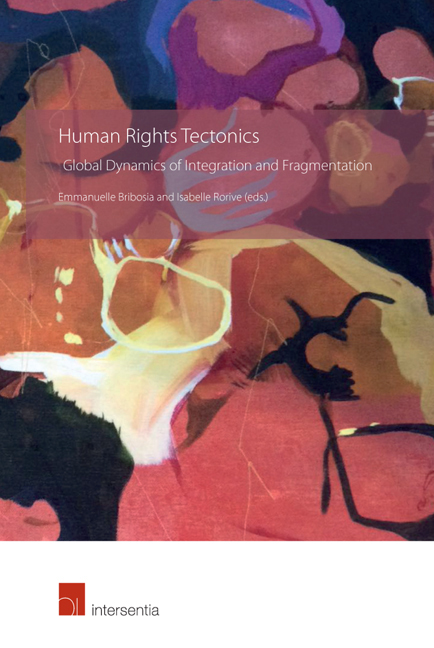Book contents
- Frontmatter
- Foreword
- Contents
- List of Cases
- List of Contributors
- Introduction to Human Rights Tectonics
- PART I PROMISES AND CHALLENGES OF AN INTEGRATED APPROACH TO HUMAN RIGHTS
- PART II HUMAN RIGHTS TECTONICS THROUGH AN ISSUE-BASED APPROACH
- Why a Global Approach to Non-Discrimination Law Matters: Struggling with the ‘Conscience’ of Companies
- Sexual and Reproductive Rights at the Crossroads: Intersectionality and the UN Treaty Monitoring Bodies
- The Integration of Cultural and Economic Rights by Regional Human Rights Courts
- The Use of External Instruments by the European Court of Human Rights: (Missed) Opportunities for the Rights of Persons with Disabilities
- PART III HUMAN RIGHTS DYNAMICS IN EUROPE
- About the Editors
The Integration of Cultural and Economic Rights by Regional Human Rights Courts
from PART II - HUMAN RIGHTS TECTONICS THROUGH AN ISSUE-BASED APPROACH
Published online by Cambridge University Press: 31 January 2019
- Frontmatter
- Foreword
- Contents
- List of Cases
- List of Contributors
- Introduction to Human Rights Tectonics
- PART I PROMISES AND CHALLENGES OF AN INTEGRATED APPROACH TO HUMAN RIGHTS
- PART II HUMAN RIGHTS TECTONICS THROUGH AN ISSUE-BASED APPROACH
- Why a Global Approach to Non-Discrimination Law Matters: Struggling with the ‘Conscience’ of Companies
- Sexual and Reproductive Rights at the Crossroads: Intersectionality and the UN Treaty Monitoring Bodies
- The Integration of Cultural and Economic Rights by Regional Human Rights Courts
- The Use of External Instruments by the European Court of Human Rights: (Missed) Opportunities for the Rights of Persons with Disabilities
- PART III HUMAN RIGHTS DYNAMICS IN EUROPE
- About the Editors
Summary
Though human rights law is fragmented across distinct regimes on specific rights holders and different types of rights, in real life people experience rights in a more integrated fashion. From the several identities and social positions that shape people's enjoyment of rights, this chapter concentrates on those that concern cultural identity and economic background. Albeit analytically distinguishable, in practice, the cultural and economic relations of privilege and disadvantage often operate in complex and inter-related ways, challenging policy and normative responses. This is aptly reflected in the experience of Roma, Travellers and indigenous peoples. They are amongst the poorest in many countries and their identities and worldviews are widely disrespected. Their cultural and socioeconomic characteristics may both operate as proxies for racial discrimination. Important aspects of their struggles against discrimination, assimilation and destitution in Europe and the Americas therefore lie at the crossroads of cultural and economic inequalities. Yet in law, particularly in human rights adjudication, these questions too often appear disconnected, as explained further below.
This chapter examines more than 30 judgments and decisions issued prior to 2015 by the European Court of Human Rights (ECtHR) and the Inter-American Court of Human Rights (IACtHR) on Roma, Travellers and indigenous land-related cases respectively. This body of case law is frequently regarded as ‘a jurisprudence of difference’ – that is, case law concerned with minorities’ cultural identity, lifestyles and ‘special needs’. However, at the same time, the cases studied have pushed the regional courts to deal with legal claims over land, living conditions, housing, protection against eviction and access to and management of natural resources. While this case law has attracted extensive interest from the perspective of the ‘culturalisation’ of human rights law, less attention has been paid to the interaction between this legal phenomenon and the advancement of socio-economic equality claims. This chapter grapples with this interaction.
By looking at the aforementioned cases, the chapter explores whether and how rights claims of cultural and economic disadvantage could be integrated into the court's legal analysis. It should be noted that throughout this chapter, notions of culture and identity are used rather indistinctly. Although some doctrine distinguishes them, human rights courts tend to use these terms interchangeably or in close connection to each other.
- Type
- Chapter
- Information
- Human Rights TectonicsGlobal Dynamics of Integration and Fragmentation, pp. 163 - 192Publisher: IntersentiaPrint publication year: 2018



